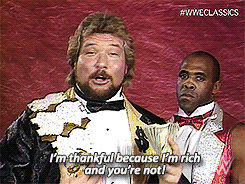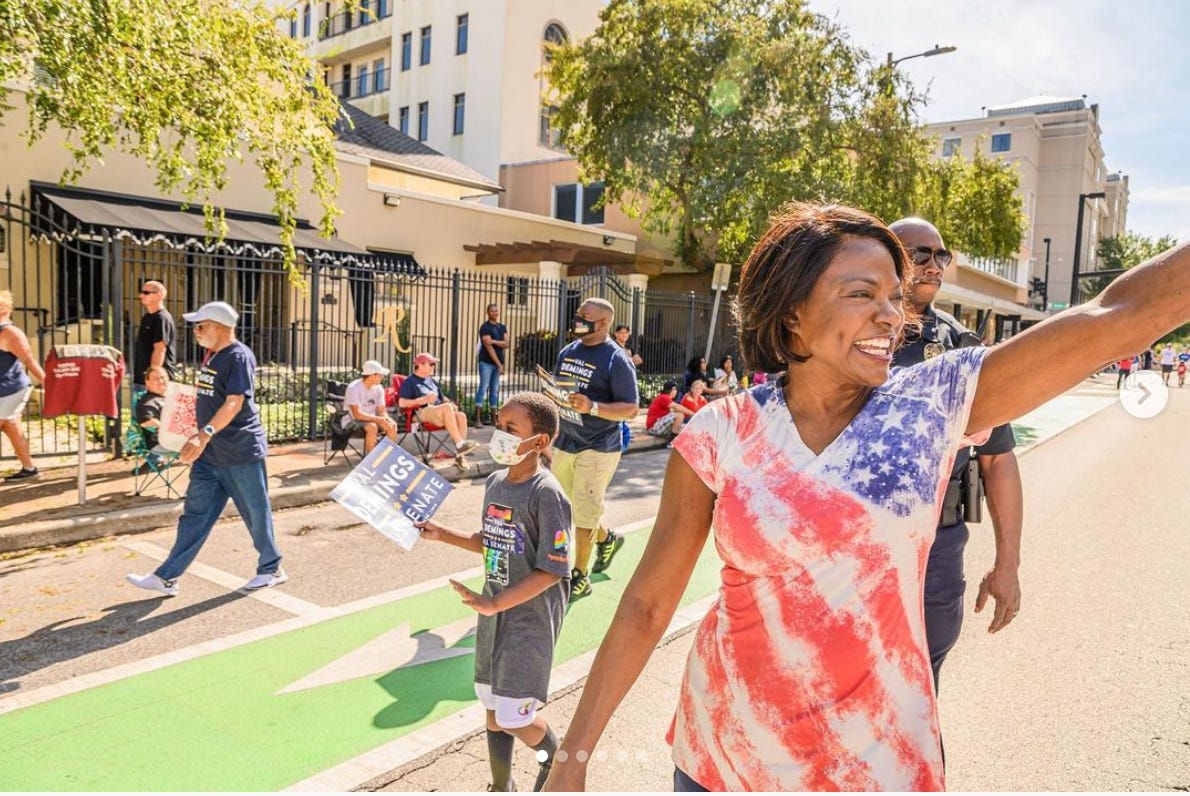'She's going to get killed': Money isn't everything
Remember this the next time you get excited about a fundraising number.
In evaluating the health of any political campaign, reporters generally rely on a criteria of six categories: 1) Candidate quality (Can she handle a fastball from a local TV reporter? Is he prone to gaffe? ) 2) Organizational muster (Is there staff turnover? Does it leak when the principal bodyslams the bodyman?) 3) Polling (Treacherous as the record may be, we roll in polls like pigs in mud.) 4) The Environment (Focus groups moms are mad! The Dems are screwed!) 5) Historic partisan trend (Florida is getting redder; Arizona inching bluer.) and 6) Fundraising.
Only the sixth is a truly ironclad metric. Bad candidates sometimes win. As do middling campaign managers overseeing perpetual drama and irreconcilable dysfunction. (See: Trump, 2016) Polling — especially in primary campaigns — is often skewed, always temporary and sometimes dead wrong. The environment is like a season in that it can be diligently forecast, but is not without volatile surprises. And a state’s partisan trend can snapback dramatically when the environment soils. (See: Virginia, 2021).
There’s subjectivity and mystery in numbers 1 through 5.
But money? Money is as real as leaves begin green. And it can be counted up and totaled down to the penny. In fact, federal law requires campaigns do just that and report their incoming receipts at least four times a year, and always at the end of each quarter. It’s not a hunch, or a guess. It’s a document filled with tangible, concrete capital.
So it’s understandable that reporters obsess over these numbers and devote a battery of stories to which candidate has raised the most, who is trailing and who has banked the largest nest egg to crack open later. Campaigns get sucked into the game too, eagerly blasting out press releases about their $200,000 or $2 million advantage over their opponent.
Now, it goes without saying that without a sufficient amount of money, a campaign can’t hire staff to produce digital and TV advertisements as well as awareness in the broader media sphere that ultimately propels people to care enough to cast a ballot for a said candidate.
But in an era when every level of our politics is hyper-polarized and nationalized, political coverage is widely abundant and embedded in our culture and distrust in politicians and institutions remains depressingly high, let me hold forth a counterintuitive theory:
Money isn’t as important in determining a campaign’s fate as it’s made out to be.
This is not an argument about the corrupting influence money can have on the policies our politicians support or oppose. It’s obviously still imperative to track who is funding public officials and the timing of donations. The ongoing debate over how much a person should be allowed to give and whether she or he should be permitted the cloak of anonymity carries merit.
But the fate of a particular candidacy will not be determined by whether the campaign raised $200,000 or $2 million more or less than their opponent’s. The “winners and losers” of fundraising quarters are allotted far too much significance.
A baseline of money is necessary to compete, but gargantuan sums increasingly produces diminishing returns, especially if you’re struggling with the rest of the six-point physical outlined above. (See: Bloomberg, Mike, 2020)
The bulk of the millions raised by candidates is spent on television and digital advertising. Ask yourself: How many TV ads do you sit and watch anymore, if you see them at all? (Ok, you’re a junkie, nvm). Even if they pop up on Hulu, don’t you tune them out?
Even online — which is becoming the most important political medium, though still plays second fiddle to television in dollar allocation — I’ve begun jolting the volume down on my devices or minimizing the screen to resist the obligated advertisement.
In 2017, political scientists at the University of California Berkeley conducted a study using 40 experiments to analyze how much campaign outreach and advertising has on Americans’ choices in general elections.
“An average effect of zero.”
Read that sentence again.
And yet, when you casually ask an operative how a candidate is doing, there’s usually a gravitational pull first to a singular criteria: “Well, he’s raising the money … He’s on TV.” Or, egads, he’s not!
Rep. Val Demings, a Black Orlando congresswoman who was vetted to be Joe Biden’s running mate, has raised more than $20 million in her U.S. Senate campaign against Marco Rubio in Florida.
“She’s raising the money…”
And…she is. If she continues collecting cash at this clip, she’ll likely erase Rubio’s $2.5 million dollar banked advantage by this spring, and perhaps even eclipse it.
But Florida hasn’t been hospitable turf for Democrats in at least a decade. Even in 2018, a year when Democrats were riding high across the country, retaking the U.S. House of Representatives and swiping back governorships, Republicans maintained the governorship in Florida and knocked off an incumbent astronaut to add a Senate seat to their roster.
Put aside the money Demings is raising and replace it with a logic cap. Even if the 2022 political environment improves for Democrats, it’s not going to be anywhere as favorable as 2018, when Florida Democrats still couldn’t eek out statewide wins.
“No amount of money changes the landscape,” one Democratic digital fundraiser who has worked on a host of presidential and congressional campaigns tells me, “but if you invest your money well, you can move voters. Just not 20 points, or 10 points, or even 5 points.”
A few points then?
“I dunno,” he admits.
Then, he delivers this dagger, which required anonymity in order for him to continue to work in Democratic politics:
“I like Val Demings, but she’s going to get killed.”
In 2016, Donald Trump’s campaign raised and spent about $340 million to Hillary Clinton’s $581 million. I mean, yes, he was a celebrity and cable news gave him endless air time. (You watched the rallies didn’t you?) I get it. But this is not a small difference, it’s a colossal gap of $240 million.
At least Hillary “won” the fundraising quarters. I’m sure she has those clips pinned on her wall in Chappaqua.
Take a look at this chart, courtesy of CNBC, showing Joe Biden’s spending through the closing window of the 2020 Democratic presidential primary race, which was upended by the coronavirus.
That’s Biden in fifth. If I would’ve told you the fifth best fundraiser in a primary would go on to win it and the general election, would you have believed me?
Trump and Biden — those are exceptions, you say! Special cases, extraordinary circumstances.
Alas, dedicated Democrats will remember the spree of 2020 Senate races that also featured candidates (Jaime Harrison in South Carolina, Sara Gideon in Maine) with much more money securing far fewer votes. We’re not talking about margin of error losses in these cases. We’re talking about blowouts. Harrison raised $132 million to Graham’s $112 million to lose by 10 points.
From this AP analysis of 2020:
Democratic candidates raised a whopping $626 million in 14 highly competitive races, vastly overshadowing Republican collections of $386 million in the same contests, according to FEC filings.
Quick math — that’s a $240 million deficit between the two parties’ candidates.
Here we are again: Most Democratic Senate candidates in cycle are outraising their opponents early.
There may be no more competitive Senate contest in 2022 in Georgia, where Democrat Raphael Warnock entered the year with $18 million more dollars than former N.F.L. star Herschel Walker. During the last three months, Warnock collected $4.4 million more than Walker, during his first quarter in the race when the money should be easiest to secure.
And yet, there aren’t many alarm bells ringing that Walker won’t be competitive.
Yes, there’s the loads of outside money that will pour in from Republican groups to do the dirty work against Warnock. But even before they’ve unloaded their assault, polls show Walker to be in a dead heat already. Just by being a relatively famous Republican in America’s potentially newest swingy state.
Steve Gordon, a longtime Republican fundraiser who is now retired, says he doesn’t think early fundraising gaps matter to the extent they used to because “you can raise so much so quickly with $5 and $10 requests” online.
He also believes late money can be more powerful, a belief that’s disputed among fundraisers.
“Early money shouts, late money whispers very loudly,” Gordon says.
Nonetheless, Walker will continue to raise money, but he won’t need to raise more than Warnock, especially in a year when the environment (Criteria #4) and candidate quality (Criteria #1) will be more determinative.
In a state where the presidential race was decided by 10,457 votes — the closest of any in our glorious union — the Warnock-Walker race was always going to be a showdown.
Betcha money it doesn’t come down to who raises more.
In Wisconsin, where Democrats are high on their opportunity to knock off two-term Sen. Ron Johnson, some in the party were elated by their leading candidate’s fourth quarter fundraising number that topped Johnson.
But as Dave Weigel noted this week in his newsletter, The Trailer, Johnson won his 2016 race by raising just $20 million to defeat Democrat Russ Feingold, who hauled in $24 million.
The same Democratic digital strategist who was dour on Demings added, “[Johnson’s] going to give himself $10 million. It doesn’t matter that he raised $700,000.”
Wisconsin — where just 20,682 votes separated Biden and Trump in 2020 — is also almost guaranteed to produce a margin-of-error finish no matter who is on the ballot.
“Some states are always going to be competitive, some states are never going to be competitive — no matter how much money you raise,” says Joshua Alcorn, who directed finances for Harry Reid and Beau Biden.
In thinking about the chase for money, Alcorn said it should probably be framed as “less of a horse race” and more about reaching a threshold of dollars that allows a campaign to fully function on the ground.
As a fundraiser now working in the private sector, Alcorn still thinks having more money is always the optimal outcome for any organization, let alone candidate.
But he did allow that the increasing pattern of large sums of money being poured into predictable losses might come to a head eventually.
“There is a reckoning coming at some point. Donors wondering if money is going to the right place. Candidates looking at consultants and where they’re spending the money,” he said. “I don’t know when it’ll be.”








